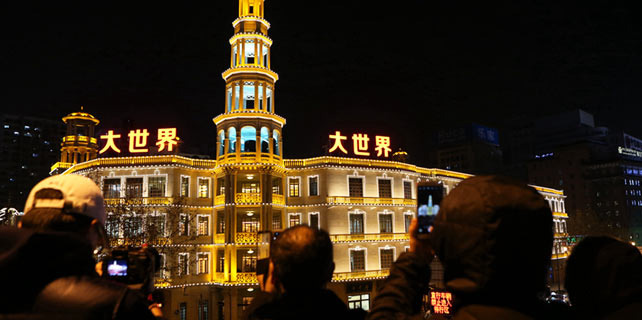Huiyang's luthiers hit the right notes
Almost everyone knows the world receives loads of manufactured goods and products like fireworks, fire crackers, Christmas-related goods, toys and gadgets from China. Not many know, however, that China is also the leading supplier of guitars, with one district in a city alone accounting for 25 percent of the global output.
Huiyang, a district in Huizhou, Guangdong province, in the Pearl River Delta, is home to more than 200 guitar manufacturers. Thanks to financial backing from investors from Taiwan province and South Korea, the luthiers have been supplying to all parts of the world over the past two decades, earning Huiyang the nickname of "the Capital of Guitars".
But, somehow, they have been unorganized all these years, and hence unable to make concerted efforts to further their lot.
Now, things are beginning to change.
They have realized the need for a trade association to facilitate exchanges among themselves and to evolve standardized products and manufacturing benchmarks, according to industry insiders.
"After years of growth, we needed to set up an association to address the difficulties in expanding to new markets," said Yan Wei, secretary-general of the newly formed Huiyang Guitar Industrial Association.
The body was set up in late November. So far, 108 guitar makers have joined it.
"The association's members would be able to share information on raw material supplies, technologies, industrial experts and marketing. It will help increase business efficiency and avoid internecine competition," said Yan.
Some local financial and logistics organizations have also agreed to provide support services to local guitar makers affiliated to the association, said Yan.
Besides, local cultural authorities plan to work with the association toward organizing a guitar cultural and arts festival, in order to promote the local guitar industry.
That has become necessary because "local guitar makers have been facing great pressure to transform their businesses" due to "rising production cost and labor cost, and slower global demand of recent years", said Yan.
Some local guitar manufacturers have had problems in boosting their sales because their products were considered inferior in global markets.
"Some firms, especially small and medium-sized ones, simply pursued profits by making low-quality guitars or by copying branded products in a fiercely competitive market. But such an approach will pose great challenges to the entire segment of guitar-makers," said Yan.
So, the new guitar-makers' association would strive to standardize production methods of members in the long term, said Yan. "That would help ensure quality, which is of great importance for our sustainable development."
Over the past two decades, Huiyang's guitar-makers have developed a complete production and supply chain, he said.









